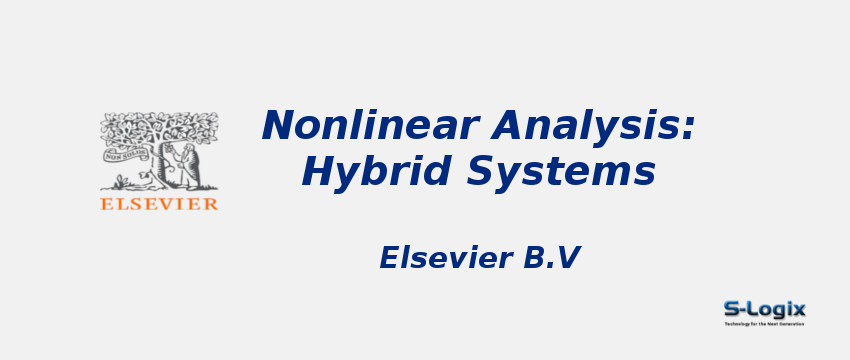Journal Home: Journal Homepage
Editor-in-Chief: M. Heemels
Print ISSN: 1751570X
Electronic ISSN:
Abstracting and Indexing: Scopus, Science Citation Index Expanded
Imapct Factor 2024: 4.1
Subject Area and Category: Computer Science,Computer Science Applications,Engineering,Control and Systems Engineering,Mathematics,Analysis
Publication Frequency:
H Index: 72
Q1: Analysis
Q2:
Q3:
Q4:
Cite Score: 7.9
SNIP: 1.357
Journal Rank(SJR): 1.387
Latest Articles: Latest Articles in Nonlinear Analysis: Hybrid Systems
Guidelines for Authors: Nonlinear Analysis: Hybrid Systems Author Guidelines
Paper Submissions: Paper Submissions in Nonlinear Analysis: Hybrid Systems
Publisher: Elsevier BV
Country: Netherlands
